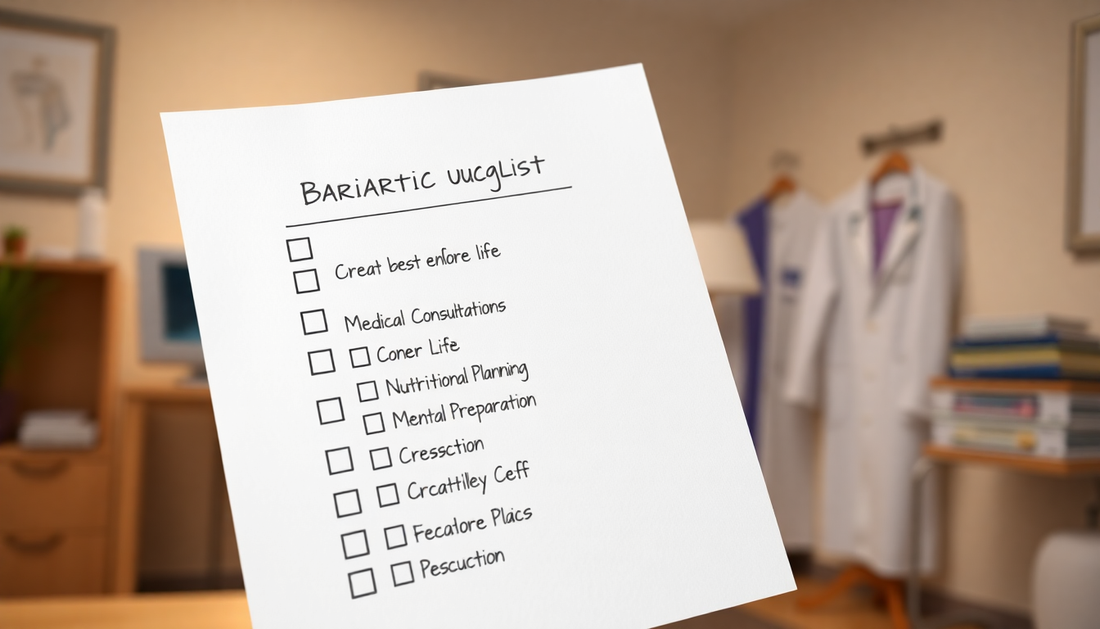
Preparing for Bariatric Surgery: A Comprehensive Checklist
Share
Embarking on the journey of bariatric surgery can be both exciting and daunting. As a trusted provider of fast-dissolving, filler-free vitamins and supplements, Vita4Life! understands the importance of proper preparation for this life-changing procedure. Whether you're considering gastric bypass, sleeve gastrectomy, or another bariatric option, a comprehensive checklist can help ensure a smooth and successful outcome.
Medical Preparation
The first step in your bariatric surgery journey is to undergo a thorough medical evaluation. This typically includes an initial consultation with your surgeon, where they will assess your overall health, medical history, and suitability for the procedure. During this time, you'll also undergo a series of required medical tests and examinations, such as:
- Blood work to assess your overall health and identify any underlying conditions (American Society for Metabolic and Bariatric Surgery).
- Imaging tests, such as an endoscopy or abdominal ultrasound, to evaluate the structure and function of your digestive system (Johns Hopkins Medicine).
- Nutritional assessment to determine your current dietary habits and any deficiencies that need to be addressed (Mayo Clinic).
Your healthcare team will use the results of these tests to develop a personalized treatment plan and ensure that you are medically fit for surgery.
Lifestyle Changes
Preparing for bariatric surgery also requires significant lifestyle changes, both before and after the procedure. These changes are essential for maximizing the long-term success of your weight loss journey.
Diet Modifications
One of the most critical aspects of pre-surgery preparation is adjusting your diet. Your healthcare team will provide you with a specific pre-operative diet plan, which may involve a calorie-restricted or liquid-based diet in the weeks leading up to the surgery (ASMBS Preoperative Diet Recommendations). This plan helps reduce the size of your liver, making the surgical procedure safer and more effective.
Exercise Regimen
Regular physical activity is also essential. Engaging in regular exercise helps improve overall fitness and prepares your body for the physical demands of surgery and recovery (Mayo Clinic: Bariatric Surgery Preparation).
Smoking Cessation
Quitting smoking is crucial for reducing complications and promoting faster healing after surgery. Smoking increases the risk of infection, delayed healing, and other post-operative issues (CDC: Smoking and Surgery).
Mental and Emotional Preparation
Undergoing bariatric surgery is not just a physical journey; it also requires significant mental and emotional preparation. This includes:
- Psychological evaluation to assess your readiness for the procedure and identify any potential mental health concerns (ASMBS Psychological Assessment).
- Support group participation to help navigate the emotional ups and downs that often accompany weight loss surgery (Obesity Action Coalition Support Resources).
Practical Preparations
In addition to medical, lifestyle, and emotional preparation, you’ll need to take care of some practical considerations:
- Plan time off work: Expect a recovery period of several weeks, depending on the type of surgery (ASMBS Recovery Times).
- Adjust your home environment: Make sure your space is comfortable and accessible for your post-operative recovery (Johns Hopkins Hospital Discharge Instructions).
Financial Considerations
Bariatric surgery can also have financial implications, so it’s important to understand your insurance coverage and budget for out-of-pocket expenses, including pre-op tests and post-op supplements (ASMBS Bariatric Surgery Costs).
Medical Disclaimer: This content is for informational purposes only and is not intended to provide medical advice, diagnosis, or treatment. Always consult with your physician or qualified health provider regarding your health questions or before starting any new treatment plan.
